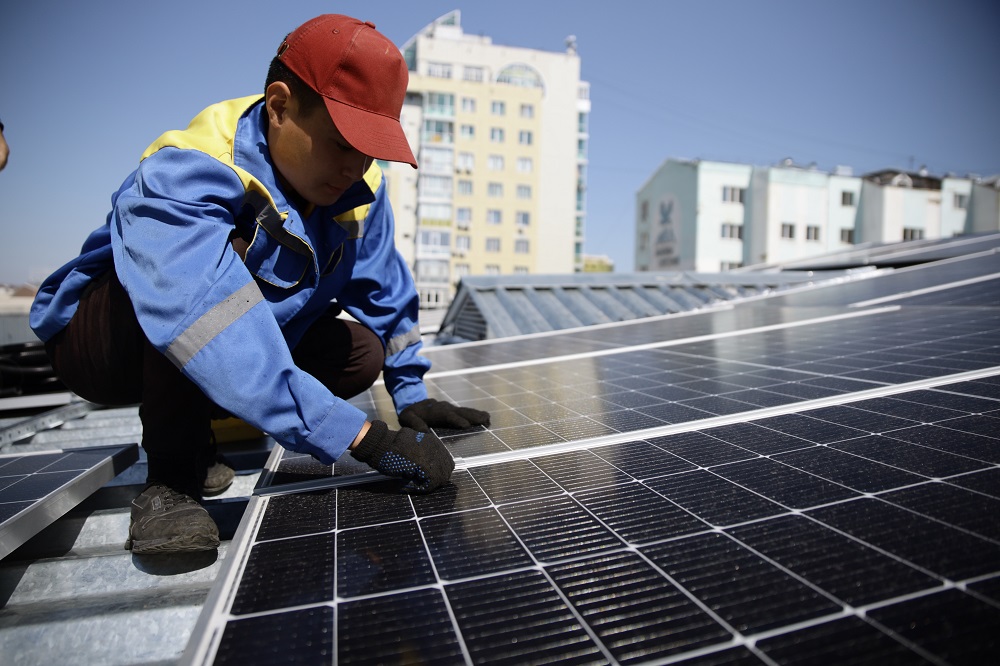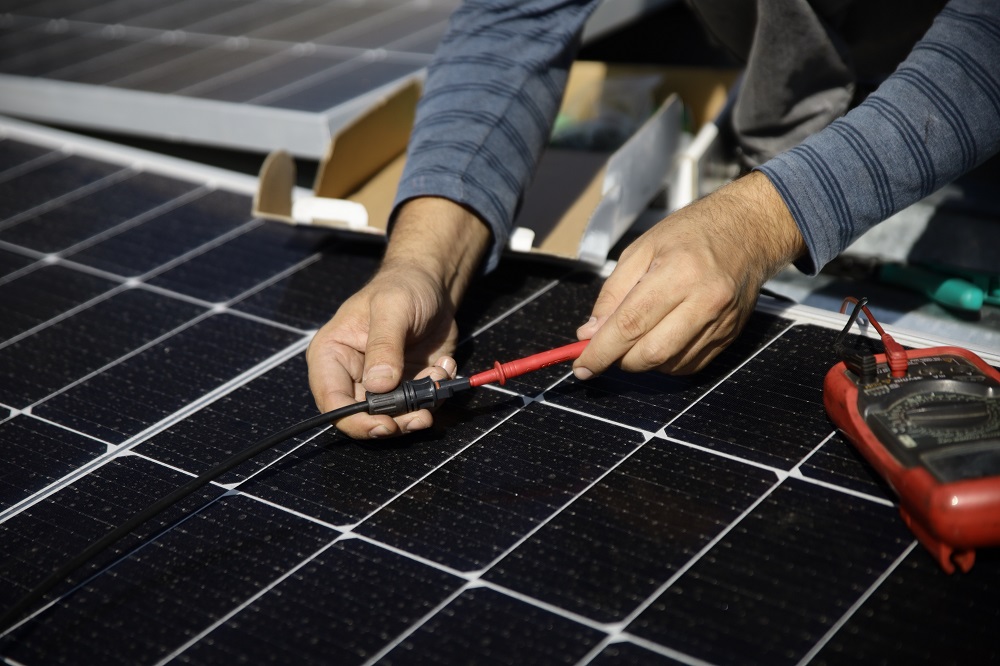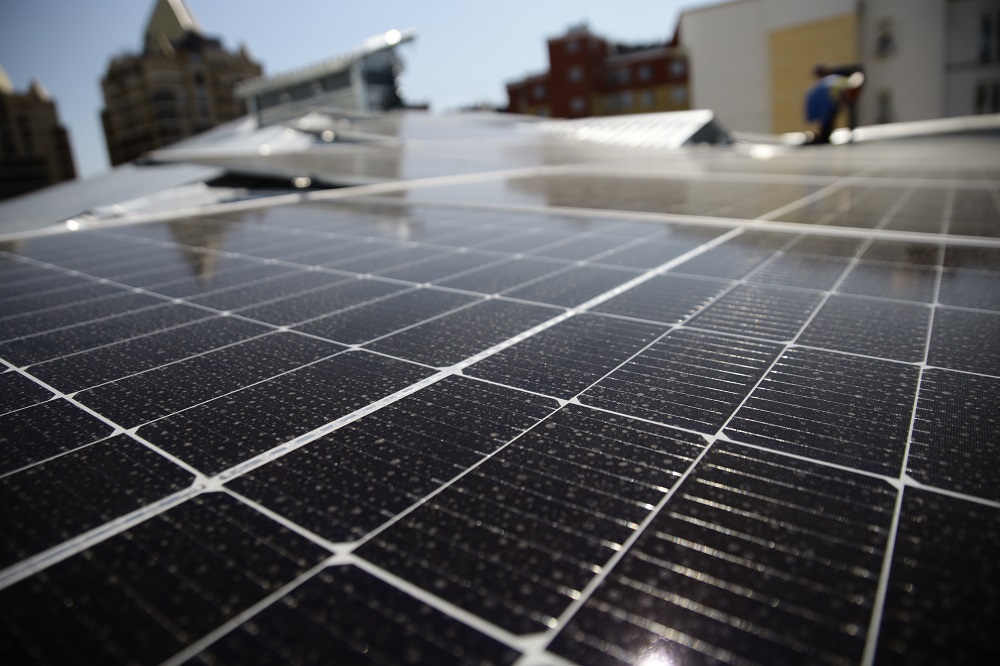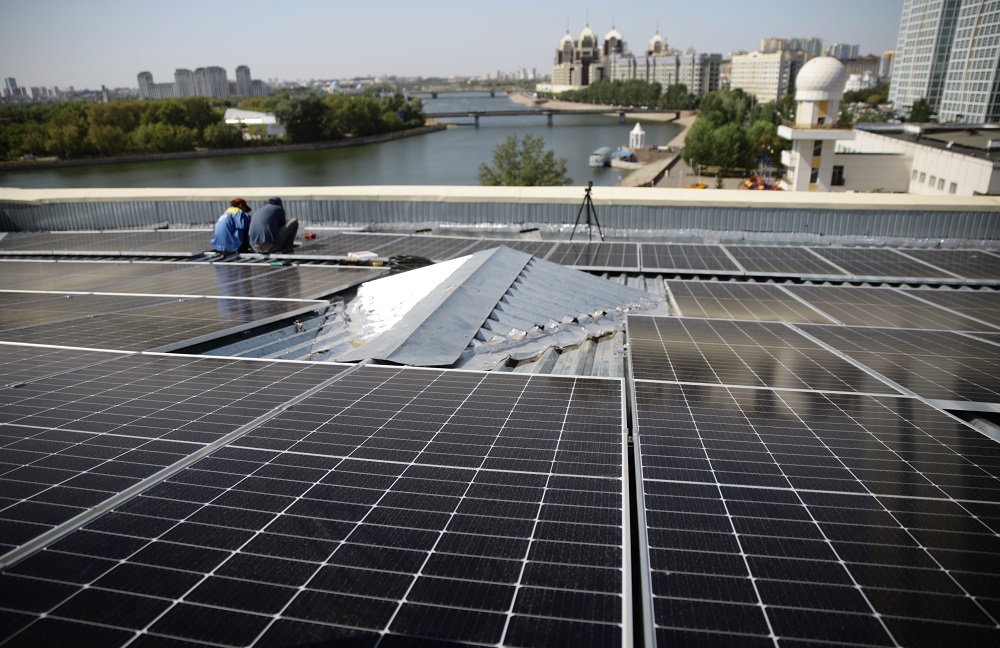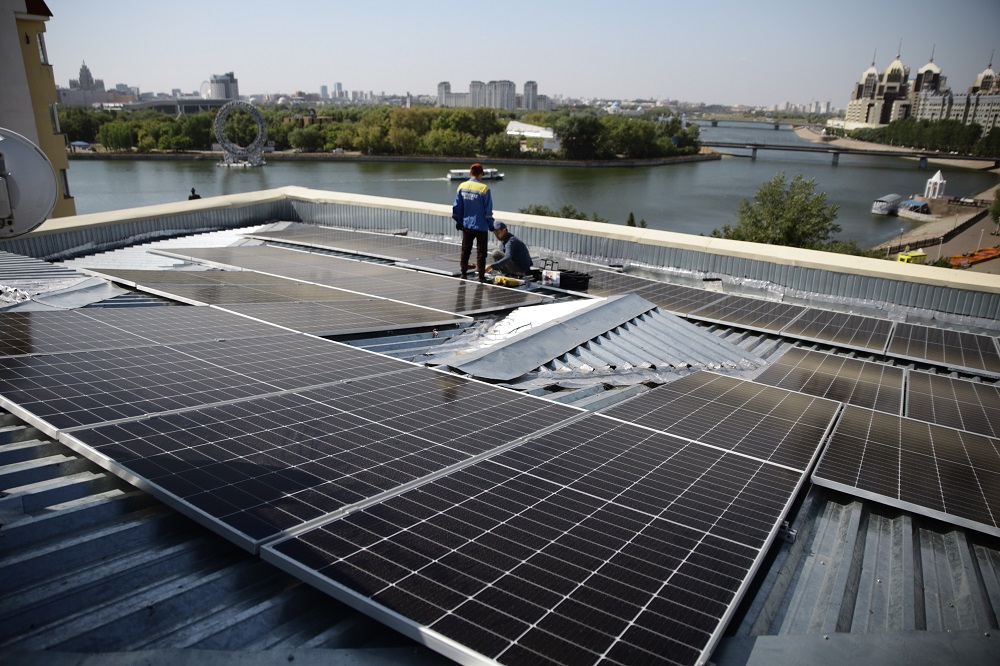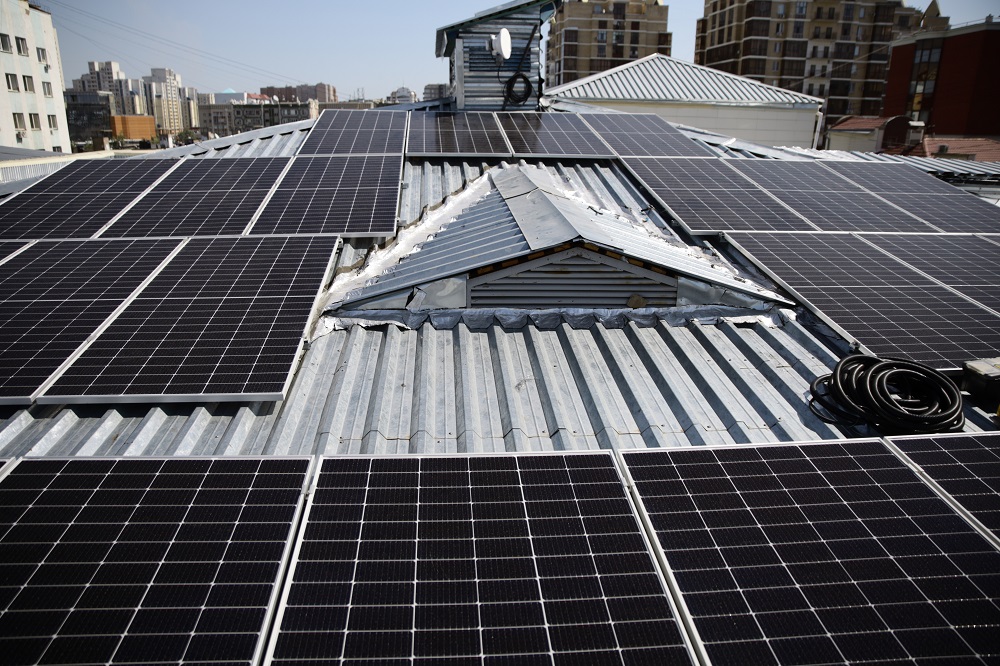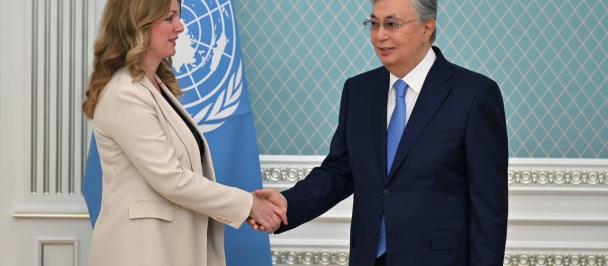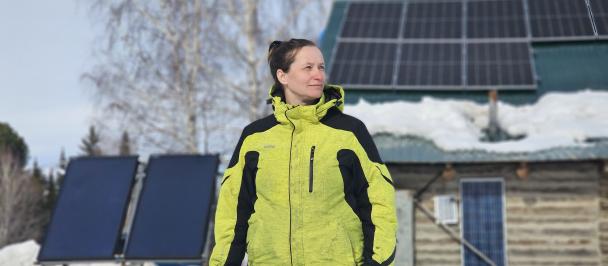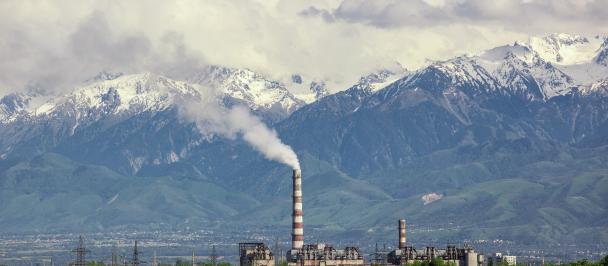Photo: UNDP Kazakhstan, September 2021
Today, when the world still cannot keep global warming within 1.5 degrees Celsius, the impact of climate change, such as fires, extreme heatwaves, droughts, and devastating floods, are already threatening to make some parts of our planet uninhabitable. In August this year, the Intergovernmental Panel on Climate Change issued a stern warning to world leaders about the need for more concerted drastic action to avoid an ominous and more dangerous future.
One of the key sectors of carbon dioxide emissions in Kazakhstan is urban infrastructure and services: for example, heat supply, water supply, and sewerage system, collection of household waste, and construction of buildings. Cities currently account for about 70 percent of global carbon emissions and over 60 percent of resource use in the world.
Photo: UNDP Kazakhstan, September 2021
As a leading agency in the fight against climate change, the United Nations Development Programme (UNDP) is committed to “walk the talk” by demonstrating that it runs its operations in a resources-efficient, sustainable and accountable way.
In 2019, UNDP committed to reducing greenhouse gas emissions from global operations, including building maintenance, in all UNDP offices by 25 percent by 2025 and by 50 percent by 2030.
Thus, around the world, UNDP is working towards reducing greenhouse gas emissions associated with the use of fuel, electricity, space heating, and cooling. Substantial progress in this direction has been already achieved globally.
Today more than 20 of the 167 UNDP country offices have installed green energy technologies to reduce greenhouse gas (GHG) emissions and to enhance office energy security. Globally, UNDP offices have more than 1.4 MWp of photovoltaic solar panels generating 2.7 GWh/year of clean, affordable, and reliable electricity, while reducing GHG emissions by more than 1,000 tons CO2e and avoiding around US$600,000 in energy costs per year. In total, 34 projects have been financed in 2020 alone, valued at $ 1.92 million as part of Moonshot, a dedicated UNDP carbon footprint initiative. In 2021, 21 more projects were selected for financing.
Photo: UNDP Kazakhstan, September 2021
The UNDP office in Kazakhstan was no exception, having joined this initiative this year with financial support from UNDP headquarters, as well as from several United Nations agencies, including the office of the UN Resident Coordinator in Kazakhstan, the International Organization for Migration and the Office of the United Nations High Commissioner for Human Rights, whose offices are located in the UN building in Nur-Sultan. In September this year, a solar power plant with a capacity of 25 kW was installed on the roof of the UN building in Kazakhstan. It will produce up to 20 percent of green electricity from the total electricity consumption of the building and will reduce annual CO2 emissions by 11.5 tons.
UNDP expects this initiative to serve as an example for local organizations inspiring them to take action to reduce their carbon footprint.
Photo: UNDP Kazakhstan, September 2021
According to Yakup Beris, UNDP Resident Representative in Kazakhstan, “Both in Kazakhstan and around the world, UNDP supports countries in improving and implementing climate and environmental policies and implements projects in the field of sustainable development. In addition, through corporate interventions, such as the Greening Moonshot initiative, we confirm our commitment to low carbon development to achieve a balance for people and nature. We hope that our efforts will serve as an example for other organizations across the country”.
UNDP’s reduction of the carbon footprint in Kazakhstan is achieved both through the installation of renewable energy sources and through the formation of a more environmentally friendly corporate culture within UNDP: for example, holding online and hybrid events, choosing more environmentally friendly types of movement, and transport, sorting out waste, saving energy and heat and planting trees.
Photo: UNDP Kazakhstan, September 2021
Photo: UNDP Kazakhstan, September 2021
Considering the country's ambitious goal of achieving carbon neutrality by 2060, this initiative will contribute to the UN system’s priority to promote the use of small renewable energy sources by organizations and private households.

 Locations
Locations